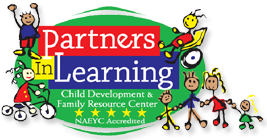Thursday, July 30, 2015
Helping children deal with death
Sunday, July 26, 2015
Music lovers
The past couple of months we have been blessed with a talented music teacher who brings her jazzy guitar and her bubbly personality to Partners In Learning. It was intended for her to sing with the older classrooms and we were accidentally left out of the classes until one day I said hey what about the infants, they love music too. So our wonderful music teacher joined us one Wednesday morning about 8:45. The infants were really not sure about her right off the bat, but once she opened her mouth to sing and play with her magical fingers, they were hooked. I was amazed of how drawn they were to her. She only plays for 15 minutes a week.
Having another person come into our classroom to give the infants an opportunity to hear music has made our weeks more enjoyable. She brings us new songs to teach our babies and gives them the same inclusion as the rest of the center. We have become really close with our music teacher and she provides us with lively entertainment. These babies have come to really love her. One infant gets so excited she bounces, claps and smiles when she hears her voice. That is what music is all about. It shows us teachers how the infants respond to the tone and volumes of the music that they hear.
This helps us when we are accessing the children later for developmental goals. So parents get out those drums, guitars and other musical instruments and play for your baby. It doesn't have to be perfect they don't judge us. They just want to move with you, move with you, They just want dance with you, dance with you.These are some words from one of the songs we sing. So play that funky music, get down tonight and fly away. Music is a great thing for the soul.
Beach Safety
Food and Water: Beach picnics are delicious, but the hot temperatures can quickly spoil food that is not preserved correctly. Avoid mayonnaise-based foods, and keep cold food cold and hot food hot. Since maintaining proper food temperatures at the beach can be challenging, try to pack non-perishable items, such as peanut butter sandwiches or dried fruit. Everyone, especially active children, must drink plenty of water to avoid dehydration.
Marine Life: Jellyfish are common visitors to many beaches, so teach kids to keep their eyes peeled for these stinging animals. Dead jellyfish can still sting, so tell kids not to poke or prod animals that wash up on the sand. Though shark attacks are extremely rare, follow simple rules to minimize the risk even further. Be aware of shark danger in your area. Do not swim if you are bleeding, and avoid the ocean during twilight hours. If the water is murky or fisherman are nearby, avoid swimming or wading.
Rules: Children should follow all instructions from lifeguards. Pay attention to flags and signs that warn visitors about tide conditions and the presence of marine life, and teach your kids to watch for these helpful indicators.
Beach trips can be very memorable when following the above suggestions.
So. Have fun, be safe!
Thursday, July 16, 2015
Every child deserves to be loved especially when they don't seem to deserve it
Wednesday, July 15, 2015
New and old friendships: How early do they begin?
Well things didn't happen the way we had planned, my friend ended up delivering her baby girl early and had to leave the job. We didn't speak much after and of course we went our own way. Months passed by and I decided to move childcare centers and place my daughter with me. It was just like a scene from the movies, here comes this cute little girl with her mom and grandma. I looked at the girl twice and said " oh is she starting here"? This must be fate, both our little girls were together again. These two were friends instantly. I only can think of what we were in for. They both had very different personalities, likes, dislikes and weird thing was that they seemed like they knew each other forever. What is the reason for this story, well these two girls are 16 years old and they are still best friends and live 45 minutes away, attend different schools, have likes, dislikes, different friends but yet when they get together its like they have never been apart. This summer we were on a trip to the beach and because social media is such an important role in most of our lives; a post was on a site that we were only hotels away from each other and they wanted to meet up. So what do two moms do, they meet up and get them together even if it is for 8 hours. These two were able to catch up on some rays, laughs and memories. This story shows that babies do learn about other infants in the womb and that infants are building relationships even at 6 weeks of birth. Letting infants sit with others during circle time and play time helps to build social skills and interactions. So when you are leaving your infant with his/her teacher and classmates just think of the friendships that your child will be making. |


